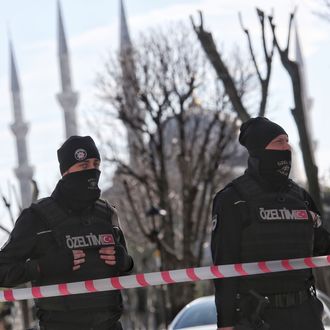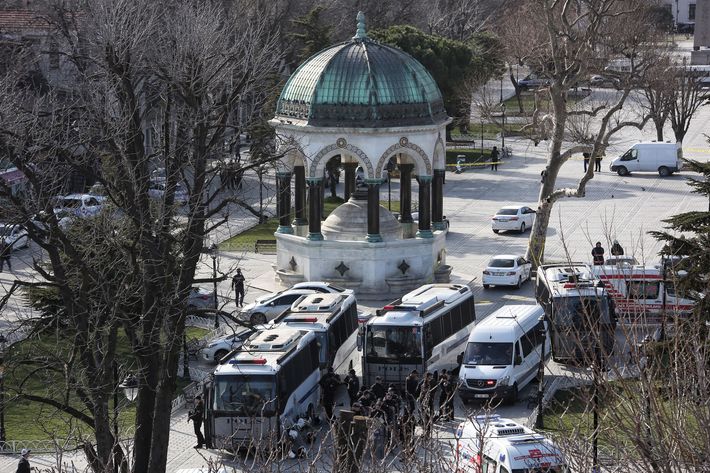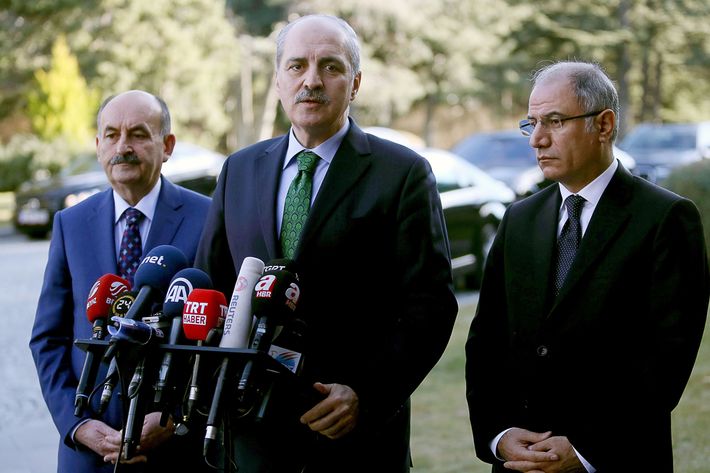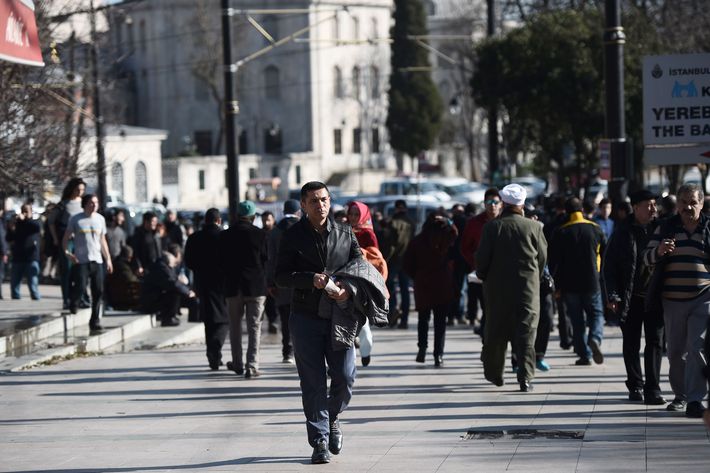
Around 10:15 a.m. on Tuesday morning, an explosion shook Sultanahmet, the tourist district in Istanbul known for housing the Hagia Sophia and the Blue Mosque. The blast took place near the Obelisk of Theodosius, which had been in Istanbul way back in 390 when the city was still known as Constantinople.
One woman who works at a store nearby told Reuters, “The explosion was very loud. We shook a lot. We ran out and saw body parts.”
At least ten people were killed. Fifteen more were wounded. Given where the bombing took place, most of those hurt or killed were foreigners visiting the historic city. Nine of those killed were German tourists, according to The Guardian.

Turkish officials said that the bomber was affiliated with ISIS, and that he was born in 1988. “The first target of all the terror groups active in this region is Turkey,” President Recep Tayyip Erdoğan said. “Because Turkey fights them all with the same determination.”
Thanks to its proximity to Syria, Turkey has had to deal with a fair number of the long conflict’s unfortunate effects — including violence, a rush of migrants, and also people trying to travel to the war-torn country to join ISIS. Turkey has also sometimes joined in the madness; in November, a Russian jet was shot down after it was accused of violating Turkish airspace.

The New York Times talked to one shop owner who seemed pretty despondent about his future business prospects. “Tourism had already dried up after last year’s explosion, but after this it’s game over. No one is going to risk their lives for shopping and history.” Another person operating a kiosk told Reuters, “This is not good for Turkey but everyone was expecting a terrorist attack.”
A little more than a year ago, a woman blew herself up at a police station near where today’s blast took place. A police officer was killed. Several other bombings have happened elsewhere in Turkey in the past year.

This post has been updated.





























